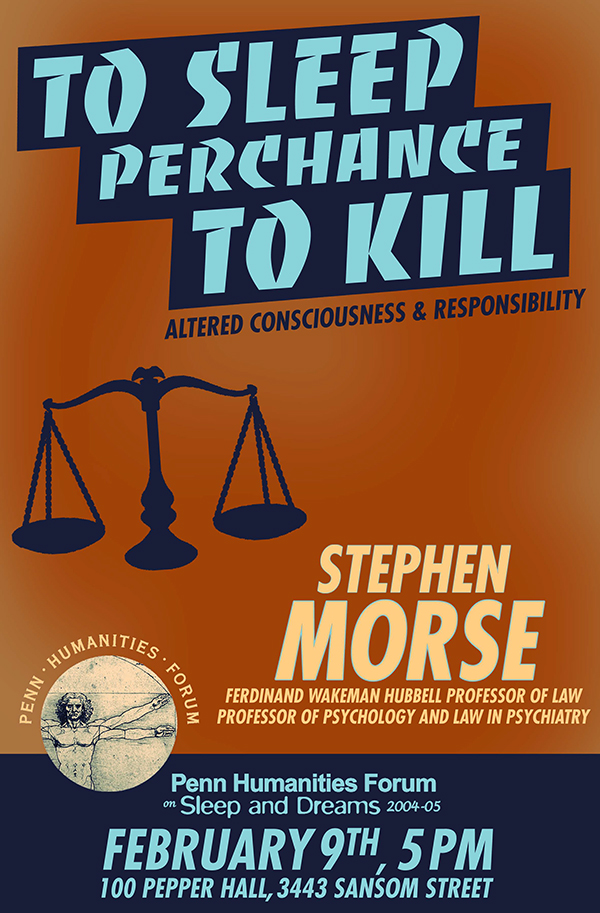Are we responsible for our criminal acts when our minds are sleeping? Sleepwalking and other states of automatism or unconsciousness pose fascinating legal problems regarding culpability and social safety. Stephen Morse, a leading expert in criminal and mental health law, explores the scientific and philosophical understanding of impaired consciousness and the criminal law’s intricate and ambivalent response.
A clinical psychologist and law professor, Stephen Morse is a renowned expert in criminal and mental health law, whose work emphasizes individual responsibility in criminal and civil law. Professionally trained in both law and psychology at Harvard, Morse has written for law reviews and journals of psychology and psychiatry, and he has contributed numerous op-ed articles. He is currently at work on a book, Desert and Disease: Responsibility and Social Control.
Prof. Morse is a Diplomate in Forensic Psychology of the American Board of Professional Psychology; a past president of Division 41 of the American Psychological Association (the American Psychology-Law Society); a recipient of the American Academy of Forensic Psychology’s Distinguished Contribution Award; a member of the MacArthur Foundation Research Network on Mental Health and Law (1988-1996); and a trustee of the Bazelon Center for Mental Health Law in Washington, D.C. (1995-present). Before joining Penn in 1988, Morse was the Orrin B. Evans Professor of Law, Psychiatry and the Behavioral Sciences at the University of Southern California.
Ferdinand Wakeman Hubbell Professor of Law
Professor of Psychology and Law in Psychiatry
University of Pennsylvania



